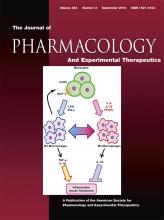Abstract
LY2951742, a monoclonal antibody targeting calcitonin gene-related peptide (CGRP), is being developed for migraine prevention and osteoarthritis pain. To support the clinical development of LY2951742, capsaicin-induced dermal blood flow (DBF) was used as a target engagement biomarker to assess CGRP activity in nonhuman primates and healthy volunteers. Inhibition of capsaicin-induced DBF in nonhuman primates, measured with laser Doppler imaging, was dose dependent and sustained for at least 29 days after a single intravenous injection of the CGRP antibody. This information was used to generate a pharmacokinetic/pharmacodynamic model, which correctly predicted inhibition of capsaicin-induced DBF in humans starting at a single subcutaneous 5-mg dose. As expected, the degree of inhibition in capsaicin-induced DBF increased with higher LY2951742 plasma concentrations. Utilization of this pharmacodynamic biomarker with pharmacokinetic data collected in phase I studies provided the dose-response relationship that assisted in dose selection for the phase II clinical development of LY2951742.
Footnotes
- Received March 17, 2015.
- Accepted June 26, 2015.
- Copyright © 2015 by The American Society for Pharmacology and Experimental Therapeutics
JPET articles become freely available 12 months after publication, and remain freely available for 5 years.Non-open access articles that fall outside this five year window are available only to institutional subscribers and current ASPET members, or through the article purchase feature at the bottom of the page.
|






